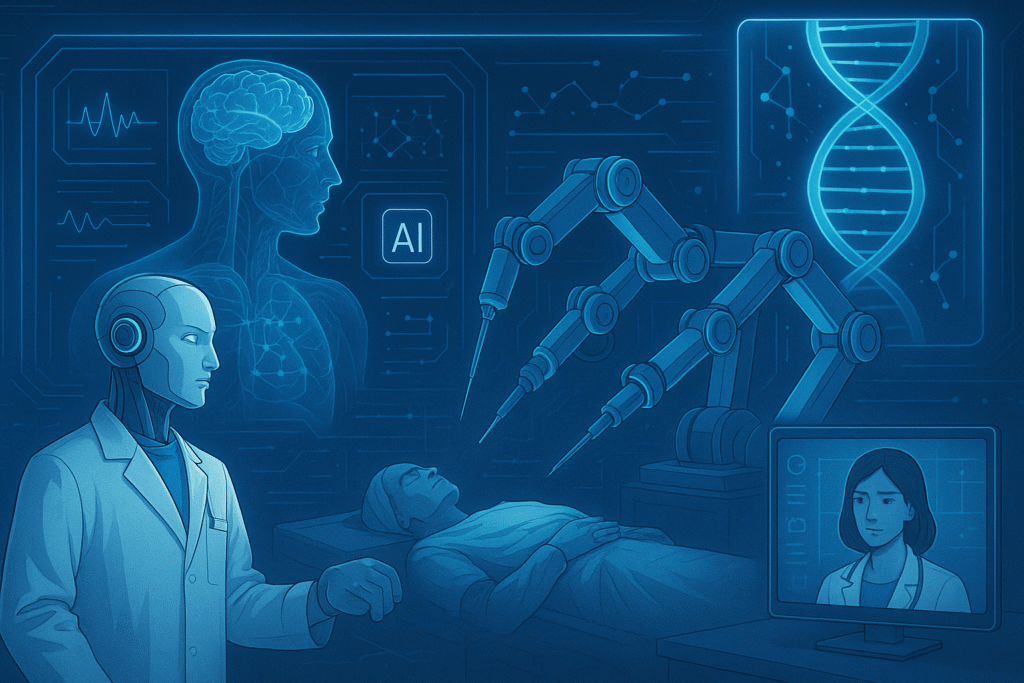Artificial intelligence may not be a classic “gizmo,” but it’s become an undeniable, rapidly evolving force in healthcare. From streamlining clinical workflows to flagging anomalies in imaging, algorithms are working their way into nearly every corner of medicine.
The jury’s still out on just how useful, safe, or transformative these tools will ultimately be. But there’s no shortage of momentum—or headlines. So here’s a curated look at some of the most noteworthy AI-in-medicine developments from the past month.
🧬 Personalized Medicine & Precision Coaching
- World’s First Custom Anterior Cervical Spine Surgery (UC San Diego)
- Cleveland Clinic-Led Research Shows How AI-Supported Precision Health and Lifestyle Coaching Program Can Improve Outcomes in Patients with Type 2 Diabetes (Cleveland Clinic)
🫀 Cardiovascular & Rhythm Disorders
- AI Tool Helps Pinpoint Problem Heart Cells in Ventricular Tachycardia (King’s College London)
- AI-Enhanced ECG Can Spot Patients at Risk of Dangerous ‘Heart Block’ Condition (Imperial College London)
🧪 Drug Discovery & Infectious Disease
- Using Generative AI, Researchers Design Compounds That Can Kill Drug-Resistant Bacteria (MIT)
- AI Poised to Revolutionize Lyme Disease Testing & Treatment (ACES Diagnostics)
- Generative AI Uncovers Undetected Bird Flu Exposure Risks in Maryland Emergency Departments (University of Maryland School of Medicine)
🧫 Cancer & Tissue Analysis
- Mount Sinai Scientists Create AI-Powered Tool to Improve Cancer Tissue Analysis (Mount Sinai Health System)
🧠 Chronic Conditions & Complex Illness
- Researchers Identify Key Biomarkers for Chronic Fatigue Syndrome (Cornell University)
- Mount Sinai Creates First Manual for Treating Infection-Associated Chronic Illness for Clinicians (Mount Sinai Health System)
👁️ Eye & Sensory Health
- AI Tool from HKU Detects Eye Diseases with High Accuracy (University of Hong Kong)
- Moran Researcher Helps Create First AI Tool for Eye Care (University of Utah)
🗣️ Voice & Vocal Health
- Diagnostic Acoustics Distinguish Vocal Fold Lesions (Oregon Health & Science University)

